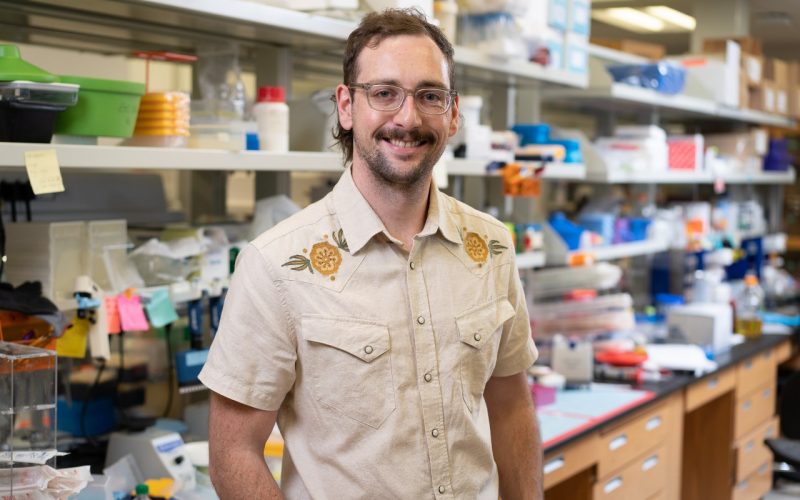
The St. Jude group replaced the extracellular domain of different cytokine receptors with leucine zippers to create constitutively active receptors. CAR T cells expressing any of these chimeric cytokine receptors had superior antitumor activity against multiple types of cancer in both cell lines and mouse models compared to conventional CAR T cells. While the chimeric cytokine receptors give a constant “on” signal to the CAR T cells, they do not induce unspecific CAR T–cell proliferation.
“We were happily surprised that these receptors turn on cytokine pathways just a little bit,” Gottschalk explained. “In the absence of tumor cells, the receptors improved CAR T–cell survival without expansion. To optimize the design and characterize our chimeric cytokine receptors, we worked closely with several St. Jude investigators, including Giedre Krenciute, Jiyang Yu, Junmin Peng, Hongbo Chi and Madan Babu.”
“Ultimately, we found a way to enhance the antitumor activity of CAR T–cells that is likely more effective and safer than injecting cytokines,” Bell concluded.
Authors and funding
The study’s other authors are Shannon Lange, Besian Sejdiu, Jorge Ibanez, Hao Shi, Xiang Sun, Xiaoxi Meng, Phuong Nguyen, Morgan Sutton, Jessica Wagner, Anil KC, Deanna Langfitt, Sagar Patil, Haiyan Tan, Ram Vinay Pandey, Yuxin Li, Zuo-Fei Yuan, Alejandro Allo Anido, Heather Sheppard, Peter Vogel, Jiyang Yu, Junmin Peng, Hongbo Chi, Madan Babu, and Giedre Krenciute, all of St. Jude; and Mitchell Ho, National Cancer Institute.
The study was supported by grants from the National Cancer Institute (P30 CA021765, F31CA250401-01A1, R01NS121249 and R01NS122859) and ALSAC, the fundraising and awareness organization of St. Jude.
